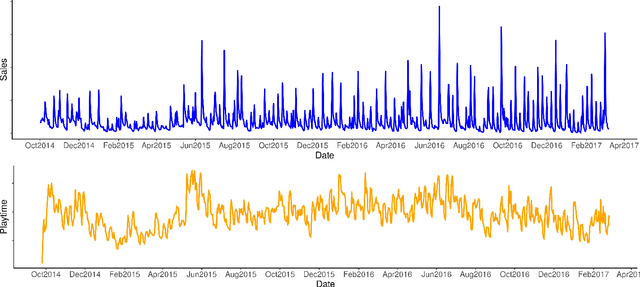Forecasting Player Behavioral Data and Simulating in-Game Events
Paper and Code
Oct 05, 2017



Understanding player behavior is fundamental in game data science. Video games evolve as players interact with the game, so being able to foresee player experience would help to ensure a successful game development. In particular, game developers need to evaluate beforehand the impact of in-game events. Simulation optimization of these events is crucial to increase player engagement and maximize monetization. We present an experimental analysis of several methods to forecast game-related variables, with two main aims: to obtain accurate predictions of in-app purchases and playtime in an operational production environment, and to perform simulations of in-game events in order to maximize sales and playtime. Our ultimate purpose is to take a step towards the data-driven development of games. The results suggest that, even though the performance of traditional approaches such as ARIMA is still better, the outcomes of state-of-the-art techniques like deep learning are promising. Deep learning comes up as a well-suited general model that could be used to forecast a variety of time series with different dynamic behaviors.
 Add to Chrome
Add to Chrome Add to Firefox
Add to Firefox Add to Edge
Add to Edge